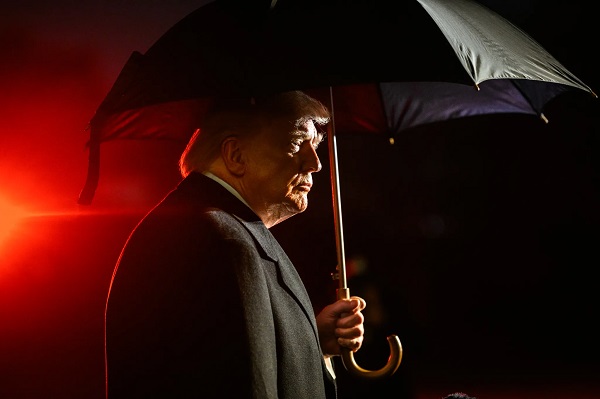.png)

Dr. Srinath Sridharan is a Corporate Advisor & Independent Director on Corporate Boards. He is the author of ‘Family and Dhanda’.
July 25, 2025 at 9:05 AM IST
The recent piece about the Coldplay kiss cam and corporate desire was a hard‑hitting reflection that shows how what looks like attraction often hides hierarchy, and does this without jargon. The writing feels sharp yet human, pulling together neuroscience, culture and everyday office life into something many of us recognise in ourselves. And that honesty, saying what many feel but rarely say aloud, is what makes it powerful.
But as I sat with it, I kept thinking about what remained unspoken. After all, it is in these “but” moments that truths often stay hidden.
Because power at work does not only twist us into predators or enablers. Sometimes it draws us in for reasons that feel quieter.
To feel seen.
To belong.
To stay close enough to power to remain relevant.
To keep our place in workplaces that reward dominance and quietly punish doubt.
And that part of the story rarely makes it onto the page.
We talk about dopamine surges, testosterone highs and the winner’s glow. And yes, biology plays its part. But what really shapes us is the culture we step into each morning. Many workplaces still reward the loudest voice, the unwavering certainty, the person who never shows hesitation. So we put on that armour. We learn to speak over gentler voices, to guard our own uncertainty, to keep winning the room. Over time, this “work self” starts to feel like the only safe self to bring anywhere.
Then it follows us home. The tone that once closed a deal shows up in late‑night conversations. The instinct to outmanoeuvre colleagues slips into arguments with those we care about. And because that posture keeps us safe at work, it starts to feel like the only way to stay safe everywhere.
The power we chase, the truths we hush
What we rarely admit is that power can feel thrilling. Even if we do not hold it, we often crave its warmth. And once we do have it, we find ourselves wanting more — more closeness, more certainty, more control. The pull of being chosen by someone influential, or being the one who does the choosing, can feel alive even when we sense it might not end well. And what keeps these dynamics alive is not only the system outside us, but something deeply human inside us that finds the pull hard to resist.
Sometimes the search for power is less about wanting to dominate and more about wanting to feel safe. In offices ruled by invisible networks and quiet codes, staying close to power can seem like the only way not to be ignored. A young woman learns that being seen by a senior leader keeps her voice in the room. A man who feels on the margins realises that speaking forcefully keeps him from being dismissed. These choices might look awkward from the outside, but they often come from the wish to remain present in rooms that would otherwise shut them out.
Control does not always shout. Sometimes it comes softly. In advice that starts to feel like ownership. In mentorship that quietly slips into possession. Even thoughtful leaders can drift into these patterns without noticing. And the silence around them holds it in place. Colleagues gossip but stay quiet. HR notices but steps back. The culture keeps turning because everyone chooses not to see.
There is also something we speak about even less. Women who rise to power can find themselves caught in these dynamics too. Sometimes that influence appears as quiet gatekeeping or guidance that becomes controlling. Sometimes it shows up in playing the victim or leaning on the martyr story to hold power in gentler ways. These patterns might be judged more harshly when women display them, and they often look different. But the wish to protect closeness, to secure belonging or to hold onto influence is not only a man’s story. It is a human story, shaped by systems that reward control in many forms, whether loud or quiet.
Questions we hesitate to ask
All of this brings us to a harder question. In workplaces built on hierarchies, can desire at work ever feel completely equal?
Policies matter.
Consent matters.
But so do decency and a sense of what is fair. Morality matters too, not in theory but in the choices we make when power tempts us to cross a line. Human tact and quiet judgement matter, because no policy can replace the moment‑to‑moment decision to act with care. Yet the shape of our organisations keeps true equality just out of reach. And that discomfort rarely enters leadership conversations.
We keep telling leaders to leave “win mode” at the door when they get home. Perhaps we should first ask why they feel pushed to live in that mode all day at work. Why do we still treat leaders who never show doubt as the model to follow? Why do we train executives to read balance sheets but rarely teach them to see how power shapes connection? And why is emotional understanding still seen as something extra rather than part of what it means to lead?
The original article ended by asking us to self‑audit. And that matters, because real strength often comes from knowing when to speak and when to listen.
But.
But after the self must come the system.
Unless we ask why so many still feel power is the only way to be seen or to feel safe, we will keep rewriting HR handbooks or giving Boardroom talks about DEI and the morality expected of leaders, while living out the same old story.
Power will always touch desire. What we rarely ask is why it still feels like the only path to mattering. Why we built workplaces that celebrate conquest but never taught us how to care, trust or love without first trying to win.
Perhaps this is the conversation we have left unsaid for too long. And perhaps it is time we stopped looking away.




